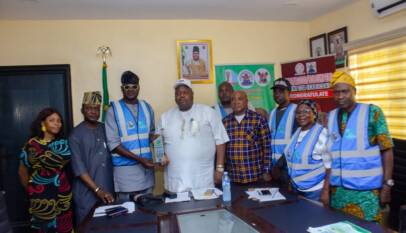Abia State, Open Government Partnership: A reform in name only?


By Comrade Nelson Nnanna Nwafor
When Abia State joined the Open Government Partnership (OGP) Local Program, it raised hopes among citizens and civil society that the government was finally ready to embrace transparency, accountability, and participatory governance.
Under the previous administration, some progress was made — including the development of the first State Action Plan (SAP 1) in collaboration with civil society organizations.
However, with the advent of the current administration, that momentum has stalled. SAP 2 has not been developed, and worse still, the core principles of OGP — citizen participation, co-creation, and openness — appear to have been abandoned.
The OGP in Abia today resembles a ruse — a token gesture rather than a commitment to meaningful reform.
SAP 1: The Foundation That Was Laid
The first State Action Plan (SAP 1), developed during the previous government, marked an important step.
It included commitments to: Improve fiscal transparency, Promote access to information, Enhance service delivery, and Strengthen citizen engagement.
This plan was co-created through consultations with civil society and outlined clear, measurable targets. While implementation faced challenges, it signaled political will and offered a platform for progressive governance reforms.
SAP 2: A Missing Commitment
Despite inheriting this foundation, the current administration has failed to develop SAP 2, the next logical step in the OGP cycle. This inaction:
Violates the timeline and process expectations of OGP member states,
Shows a lack of continuity in governance reforms and undermines the gains of the previous administration.
No effort has been made to convene stakeholders or initiate the co-creation process, despite ample time and support frameworks available from the national OGP secretariat and development partners.
Citizen Participation: Ignored and Excluded
One of the most disappointing failures of the present government is the lack of citizen engagement in identifying community needs and creating a Charter of Demand — key aspects of inclusive governance and foundational to the OGP process.
No public forums have been held to consult communities on their needs. Civil society groups have been sidelined or disengaged. There is no visible mechanism for citizens to influence government policy or budget priorities.
This exclusion contradicts OGP’s core value of co-creation and renders any claim to openness superficial.
A Reform in name only
The result is clear: Abia State’s current OGP status is largely symbolic. Without SAP 2 or any visible citizen engagement, the state is not meeting its obligations under the OGP framework. There is a growing gap between rhetoric and reality.
The implication is not just reputational. Abia stands to lose technical and peer support from the OGP Local network, miss opportunities for reform-based funding, and further erode public trust in government institutions.
What must be done
If the current administration is truly committed to good governance, the following steps are urgent; Immediately initiate the co-creation of SAP 2, working with civil society and development partners; launch inclusive community needs assessments across all LGAs to inform the Charter of Demand, institutionalize citizen participation through town hall meetings, feedback platforms, and open budgeting processes and report publicly on progress and setbacks, ensuring accountability and transparency.
Conclusion
The Open Government Partnership was never meant to be a checkbox exercise — it is a serious commitment to transforming how government works. The previous administration took a step in the right direction with SAP 1. The current government must now show that it was not all for show.
Until the State Action Plan 2 is developed and citizens are brought back into the governance process, Abia State’s participation in OGP will remain a reform in name only — a ruse that deceives no one and benefits even fewer.
Comrade Nwafor, Executive Director, Foundation for Environmental Rights Advocacy & Development FENRAD,
An Environmental Rights campaigner, Human Rights Activist and Good Governance Advocate
First CSOs/Non-State Actors Co-Chair OGP Abia State
Egbe -Idimu Chairman rallies support for President Tinubu’s economic reforms, to commission additional free buses
Stanley Ihedigbo Executive Chairman of Egbe Idimu Local Council Development Area (LCDA), H…





